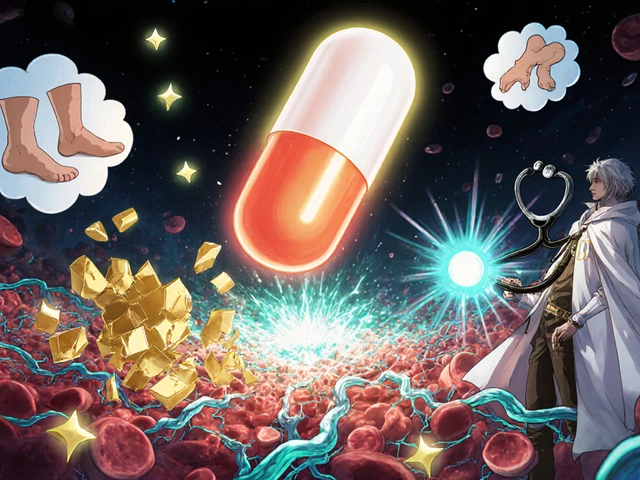Understanding Circadian Rhythm: Why Your Body Clock Matters
Everyone has an internal clock that runs on a roughly 24‑hour cycle. This rhythm, called the circadian rhythm, tells your body when to be alert, when to rest, and when to release hormones. When the clock is in sync, you feel energetic during the day and sleepy at night. Miss the beat, and you may notice fatigue, mood swings, or trouble concentrating.
How Your Body Clock Controls Health
The brain’s suprachiasmatic nucleus reads light signals from your eyes and adjusts the rhythm accordingly. Light exposure in the morning pushes the clock forward, while dim light at night tells it to wind down. Hormones like melatonin and cortisol follow this pattern – melatonin rises after dark to help you fall asleep, and cortisol peaks after waking to boost alertness.
Even the way your liver processes medication follows the circadian rhythm. Some drugs work better when taken at specific times, and taking them at the wrong hour can reduce effectiveness or increase side effects. That’s why doctors often advise taking blood pressure meds in the evening or cholesterol pills at night.
Practical Tips to Keep Your Rhythm in Sync
1. Get sunlight early. Spend at least 15‑30 minutes outside within an hour of waking up. Natural light tells your brain it’s daytime and resets the clock.
2. Dim lights after sunset. Switch to low‑intensity bulbs and avoid screens at least an hour before bed. Blue‑light filters on phones help, but turning the device off is best.
3. Stick to a schedule. Go to bed and wake up at the same times every day, even on weekends. Consistency trains the clock and improves sleep quality.
4. Time your meals. Eating at regular intervals supports the rhythm. Try to have dinner at least three hours before bedtime to avoid late‑night digestion spikes.
5. Exercise wisely. Light to moderate activity in the morning or early afternoon boosts alertness. Intense workouts close to bedtime can raise cortisol and keep you awake.
If you travel across time zones, use bright light exposure in the morning of your new destination and avoid caffeine late in the day. For shift workers, wear sunglasses on the way home to reduce evening light and use a bright lamp during the night shift to stay alert.
Understanding your circadian rhythm also helps you plan medication. For example, taking antihistamines like Zyrtec at night can align with the body’s natural drop in histamine, reducing daytime drowsiness. Talk to a pharmacist about the best timing for any prescription you take.
At 247‑drugstore.com we offer clear guides on a wide range of medicines, including how timing can affect safety and results. Browse our drug database to see if your prescription has specific timing recommendations.
Keeping your internal clock on track improves sleep, mood, and how well your body handles medication. Use the simple steps above, and you’ll notice better energy, clearer thinking, and fewer night‑time awakenings.
Myosis in Animals: How Species Adapt to Light Changes
Explore how myosis helps animals of different lifestyles adjust to changing light, from owls to humans, with real examples and a handy comparison table.
View More




